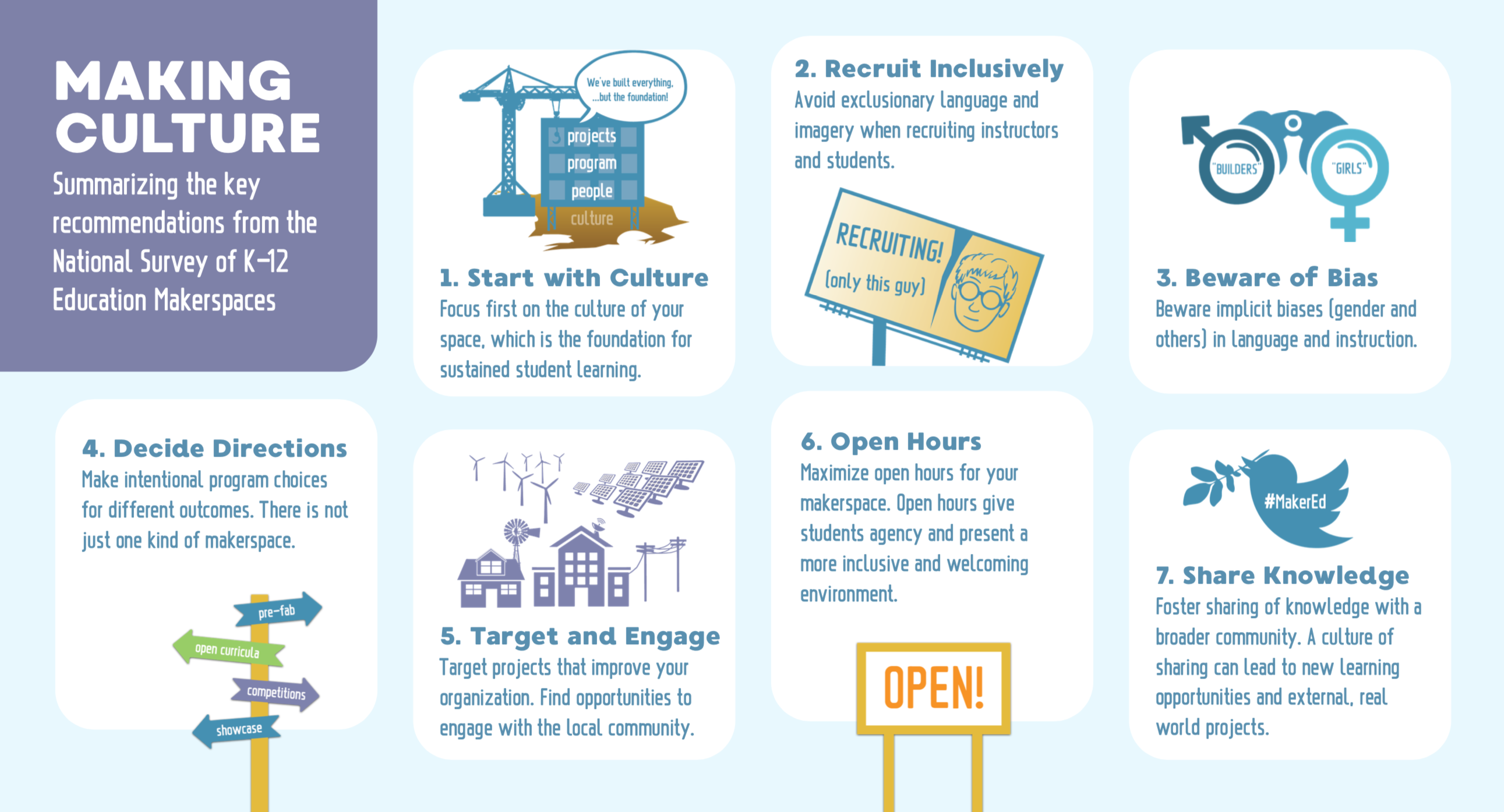Research

Research at ILLEST focuses on urban education, bridging the digital divide and providing equal and equitable access to internet and computer technology to minority students in underserved communities.
Read more about our latest research in learning science below!
Making Culture: A National Study of Education Makerspaces
Making Culture is the first in-depth examination of K-12 education makerspaces nationwide and was created as part of the ExCITe Center's Learning Innovation initiative. This report reveals the significance of cultural aspects of making (student interests, real world relevance, and community collaboration) that enable learning. The research highlights how makerspaces foster a range of positive student learning outcomes, but also reflect some of the gaps in inclusion common in the STEM (Science, Tech, Engineering, and Math) fields.
"Just put it together to make no commotion": Re-imagining urban elementary students’ participation in engineering design practices
In the growing field of K-12 engineering education, there is limited research that highlights the experiences of youth from historically marginalized communities within engineering learning environments. This study offers insights into the ways in which two groups of elementary school students constructed approaches for participating in the engineering design practice of collaborative reflective decision-making. Findings suggest that students conceptualized urban, engineering learning environments as spaces for risk management. This notion of managing risks informed their participation in collaborative decision-making, and the ways in which they viewed themselves as doers of engineering. Implications for this study include the continued need for the development of methodologies and frameworks that provide opportunities to uncover these potential risks, and design supports for student participation in engineering design practices.
(Designing for) Learning Computational STEM and Arts Integration in Culturally Sustaining Learning Ecologies
This article explores the designed cultural ecology of a hip-hop, STEM, and computing camp and the ways in which that ecology contributed to culturally sustained learning experiences for middle school youth. Using an example of four Black girls participating in the camp as they build a computer-controlled DJ battle station, this article argues that culturally sustaining learning ecologies have histories and support practices that intertwined with those of the learners. Implications include how such ecologies might arrange relations of ideas, tools, materials, space, and people to support learning and positive identity development.
Reflective Decision‐Making in Elementary Students' Engineering Design
A key feature of engineering design is collaborative, deliberate decision making that takes into account information about design options. K‐12 students need opportunities for this kind of decision making if they are to meet the learning standards for engineering set out in the Next Generation Science Standards. In student discourse, we found evidence for six reflective decision‐making elements: articulating multiple solutions, evaluating pros and cons, intentionally selecting a solution, retelling the performance of a solution, analyzing a solution according to evidence, and purposefully choosing improvements. The discourse patterns used to enact these elements both supported and interfered with students' achievement of design goals.Our results suggest that during engineering design tasks, young learners working in small teams can respond productively to opportunities to engage in sophisticated discourse. However, further work is needed on tools and strategies that support reflective decision‐making by all students during engineering design in elementary school.
Mass Appeal: Designing Open STEAM Learning Environments (OSLEs) to Promote Participation for Minoritized Students
Black Children at Play: The Cultural Practices of the ILLEST Makerspace